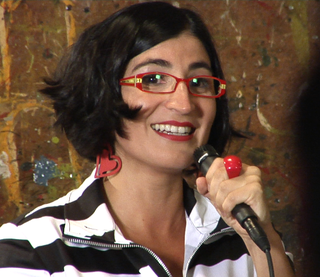A Quote by Italo Calvino
The struggle of literature is in fact a struggle to escape from the confines of language; it stretches out from the utmost limits of what can be said; what stirs literature is the call and attraction of what is not in the dictionary.
Quote Topics
Related Quotes
That love is a conflict seems to me obvious and natural. There isn't a single worthwhile work in world literature based on love that is only about the conquest of happiness, the effort to arrive at what we call love. It's the struggle that has always interested those who produce works of art - literature, cinema or poetry.
It is okay to be at a place of struggle. Struggle is just another word for growth. Even the most evolved beings find themselves in a place of struggle now and then. In fact, struggle is a sure sign to them that they are expanding; it is their indication of real and important progress. The only one who doesn't struggle is the one who doesn't grow. So if you are struggling right now, see it as a terrific sign - celebrate your struggle.
Literature can no longer be either Mimesis or Mathesis but merely Semiosis, the adventure of what is impossible to language, in a word: Text (it is wrong to say that the notion of 'text' repeats the notion of 'literature': literature represents a finite world, the text figures the infinite of language).
Dare I speak ,to oppressed and opressor in the same voice? Dare I speak to you in a language that will move beyond the boundaries of domination- a language, that will not bind you, fence you in, or hold you? Language is also a place of struggle. The oppressed struggle in language to recover ourselves, to reconcile, to reunite, to renew. Our words are not without meaning, they are an action, a resistance. Language is also a place of struggle.
I knew that the black struggle wasn't my struggle. But I felt like it was my-struggle-adjacent, you know? I've always said that if you turn the dial in one direction, a Muslim is a Jew is an East Asian person is a Native American and so on. I feel very much that all of these struggles are kind of the same and - Hillary Clinton actually said this recently - when you get rid of one barrier, it opens up the gates for a whole bunch of people you didn't even know would benefit from it. So not fighting for the black struggle is like not fighting for the Muslim struggle.
































